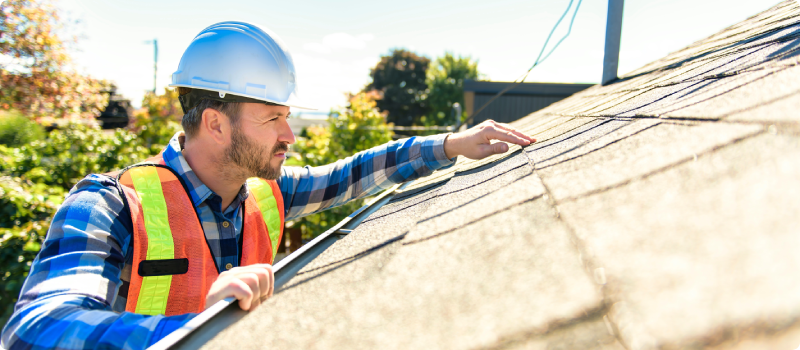How to buy a house without a realtor
Updated January 31, 2025 . AmFam Team
It takes a lot to purchase a home. With all the time and energy you spend planning, saving and building momentum toward your dreams, you’ve worked hard get where you are. And if you’re thinking about buying a home without a realtor, you’re not alone. According to the National Association of Realtors, For Sale By Owner home purchases made up a full 11 percent of domestic real estate transactions in 2018 in the US.
Whether you’re a first time home-buyer or a seasoned veteran with several home purchases under your belt you probably know that each home purchase is unique and can get complicated. Do you know how to buy a house without a realtor? If you don’t, this article may bridge that gap and to help you get the job done.
Let's review some common tips on what it takes to purchase a home without a real estate agent. And we're going to look at some potential pitfalls that you'll need to consider so you can safely navigate buying a home realtor-free.
Checklist for buying a house without a realtor
If you're still wondering, “Do I need a real estate agent to buy a house?" the answer to that will show you how much work a real estate agent actually does. But by breaking down the steps on how to buy a house without an agent, you'll have the details you need to help you go it alone. Look at this quick checklist for buying a house without a realtor:
Get funded: shop around for a mortgage
This first step may prove to be the most critical because your interest rate can have long-lasting financial implications. Be sure to apply for a mortgage with several lenders. Some online mortgage groups will actually help you apply to more than one at the same time. If all goes well, you’ll have a green light on funding with a pre-qualification letter. And you'll also know how much you’re able to spend on your new home.

Seek affordable neighborhoods
Look online to find areas that have homes selling in your price range. When you’re shopping for a new home, be sure to consider schools, distances to parks, nearby entertainment options and whether any grocery stores are within walking distance.
Get creative when finding homes for sale
Knowing how to buy a house without a realtor is all about thinking outside of the box. Look online for social media posts that list homes and dig into other resources like craigslist.org (Opens in a new tab) or fsbo.com (Opens in a new tab). Be sure to review comparable homes for sale in the area to be sure you’re paying a fair price.
Request disclosures from the seller
By now, you’ve visited homes for sale and narrowed down your options to the house you want to buy. Your next move is to ask the seller for their list of disclosures. It will include statements on the condition of the home that sellers are legally obligated to reveal prior to selling the property. You’ll get details on whether the seller’s aware of any physical conditions that either pose a health or safety risk on the property.
It’s here where a realtor’s feedback can be key. This is because their experience can help you better understand if a little water in the basement is a small issue or a $25,000 problem you’ll have to fix after buying.

Hire a real estate attorney and home inspector
Although hiring an attorney may not be required in your state, it’s a great idea to have someone familiar with the legalities of buying a home without an agent on your side. Look for well-reviewed real estate law firms that charge a flat fee for their services.
Once you’ve received an accepted offer, you’ll need to book a home inspector to check out the property. They’ll help to uncover code violations, safety issues and other concerns that may otherwise go unnoticed.
Make an offer on the home
Work with your real estate lawyer to draft an offer to buy after reviewing the seller’s disclosures. They’ll help you to write up a list of items that need to be addressed before the purchase can go through. Carefully review your offer with recently sold homes in the area to be sure your bid is competitive.
Negotiate: counteroffer and then hire an appraiser
The seller will usually have a limited amount of time to reply to your offer after receiving your bid. Once you and the seller have settled on a price and a plan, you’ll sign an agreement and pay earnest money which goes toward the purchase of the house and acts as a deposit.
Next up, you’ll need to book an appraiser to verify that the home is worth your negotiated purchase price. It’s a step that your mortgage company will require, but you’ll pay out of pocket for it. Find a well-reviewed appraiser who can get the work done soon.
Finish financing steps and close on the home
Once your appraisal has come back and validated that the price you’re offering is within reason, the real financing of your mortgage loan will move forward. Underwriters will look carefully at your credit rating, earnings and debt-to-income ratio to verify that you’re able to close and pay the mortgage, taxes and fees on time every month.
After underwriting has cleared you to close, you’ll set a date to meet with a title company and sign on the dotted line. It’s at that point that you’ll pay closing costs, points and fees associated with the purchase of the property. Once that’s done, the house is yours!
Considerations before buying a home without an agent
Prior to jumping in and purchasing a home without a real estate agent, it’s key to weigh out the pros and cons. From crafting a proper response to your home inspector’s findings to defending your purchase price, there’s a lot to weigh out:

Pros of buying a house without a realtor
The benefits of home buying without a realtor can result in a lot of money saved if you play it right. Here are some of the pros of purchasing a home without a realtor:
- Home sellers may be more willing to work with you if they don’t have to pay out three percent to the purchasing agent
- Sellers may be willing to accept an offer below their asking price because they’ve padded their asking price to accommodate agent commissions
- The internet has evened the playing field for independent home buyers who have access to historically unavailable listing data
- Hiring a lawyer helps to limit your risks and can inform you of contractual issues, which is typically the role of a realtor
Cons of buying a house without a realtor
If you’re not careful, it can be easy to find yourself in trouble during the purchase process if you don’t have a realtor on your side. Let’s review why it may be a problem to purchase a home without a realtor:
- After your offer expires, you could lose your earnest money, and the seller may begin to field other offers
- The deal may not close if your lawyer misses something and your realtor isn’t there to catch it
- Home-buying can be labor intensive and requires a lot of time and attention
- You’ll have to navigate one of the single biggest purchases of life without a seasoned expert
- Realtor insights into hidden issues of a home’s condition won’t be available to you
- You may not receive all the disclosures you're entitled to from the seller
Is it better to buy a house without a realtor?
If you’re up for purchasing your own home, buying a home without the help of a realtor may be for you. But the reality is there are a lot of variables in home buying. And often, it’s only after you’re through the process that you clearly see if the risk was worth the reward.
Whichever direction you choose, be sure to check in with your American Family Insurance agent and get a homeowners insurance quote. If you’re financing the purchase, you’ll need great coverage for your big investment. With it, you’ll find the peace of mind you need to focus on the next chapter of your life in your new home.
This article is for informational purposes only and based on information that is widely available from sources not associated with American Family Mutual Insurance Company, S.I. nor its Operating Companies. While we do our best to provide helpful resources, we make no guarantees or promises about the reliability, accuracy, or any potential outcomes. This information does not, and is not intended to, constitute legal or financial advice. You should contact an appropriate professional for advice specific to your situation. We are not responsible for the content of any third-party sites that may be linked in this article.

